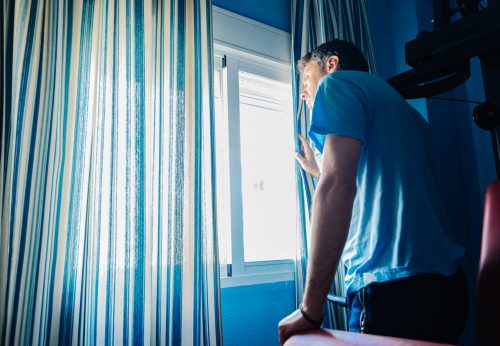
Source: healio.com
COPD is one of the most common chronic lung diseases that affect more than just the individual who is diagnosed. It also has a tremendous impact on family and friends. We will discuss here the ways that this might occur and what can be done.
Some studies reveal that the effect of chronic conditions on family members, friends, and significant others may not be like that of the individual diagnosed. But others have shown that in a lot of ways, it may be the same as well.
Stages of Grief
Supposing that the effects are the same as for the diagnosed individual, the family may also undergo the five phases of grief.
Denial. The usual phrase you hear during this stage would be, “This is not happening to our family! I don’t believe that someone from my family has COPD!” If you have a family member with COPD, you might go through this stage by denying that your loved one’s condition will eventually go away or be cured. This might be a normal method for tackling change. On the contrary, the condition may be considered minor or may be secondary to aging. Just as the way the diagnosed individual denies the impact of COPD, the family member may also be in denial of the changes that are seen along the way.
Anger. Family members feel devastated about the whole thing, oftentimes leading to anger and frustration. Some families project their anger towards the doctors after they have given the diagnosis. They become upset at the researchers for not providing sufficient information about preventing the disease. They may feel mad at the pharmaceutical companies for not developing more effective medicines. Or perhaps you feel anger at the person who is diagnosed because he did not quit smoking or not being mindful of taking care of his physical health.
Negotiating/Bargaining. The guilty feeling comes in after the anger. The family member feels bad about not being able to help the diagnosed person stop smoking sooner, or that he never did anything to avoid him from having the disease. Subsequently, he negotiates to deal with the guilty feeling. He begins to ask himself questions like, “What if he didn’t smoke ever,” or, “What if she didn’t in that polluted factory in the first place,” or, “What if I noticed it earlier?”

Source: einsteinsperspectives.com
Depression. The sadness about the whole situation becomes more profound. For the diagnosed individual’s family members, they feel very anxious that their loved one will suddenly experience shortness of breath or worse, not be able to breathe at all – and that there is nothing they can do about it. They worry about how much the condition will cost them financially, emotionally, and physically.
Acknowledgment/Acceptance. Ultimately, in the end, you accept the situation as it is, and you help each other cope as a family. The entire family, including the diagnosed individual, learns to accept the changes that have occurred and the changes that will be anticipated. You, as a family member, will eventually commit to doing what is required to help your loved one to live comfortably and cope well with his COPD.
Counselors agree that people go through these stages differently. In some, the stages happen in order and quickly, and in others, they go through them rather slowly. Still, there are several who skip one or two of these stages or even drift in and out of each stage. For example, a person may feel very sad initially, and then he skips and goes right towards acceptance, but then he yoyos through these two stages, going in and out of depression. It is not the same for everyone.
Financial Effects
COPD undoubtedly impacts the whole family financially as well. Patients with chronic lung diseases can live through their condition for a long time, and the condition progresses, the patient can lose or decrease his ability to do particular activities of daily living. This will lead the family to hire someone to care for him, especially if the family members are loaded with responsibilities with their work and their own families as well.
Consequently, the financial impact of the disease will lead to sleeplessness, anxiety, and stress. Some family members quit their jobs so that they could provide support for their diagnosed loved one. They are also worried about the cost of hiring a nurse assistant or paying for their medicines, or the bills for their doctors’ appointments and routine tests. Thus, the financial crisis can affect the economic state of the whole family. As stress and anxiety build-up, possible health-related issues also develop in some family members. It is, therefore, vital that guidance and support from the entire family are present.

Source: rawpixel.com
Conclusion
Indeed, chronic diseases like COPD impact friends and family members often more than the loved one that has been diagnosed with the disease. It is, therefore, crucial that caregivers acknowledge this fact and consider treating it appropriately. The patient’s support network of family, friends, and significant others is critical to effective patient care.